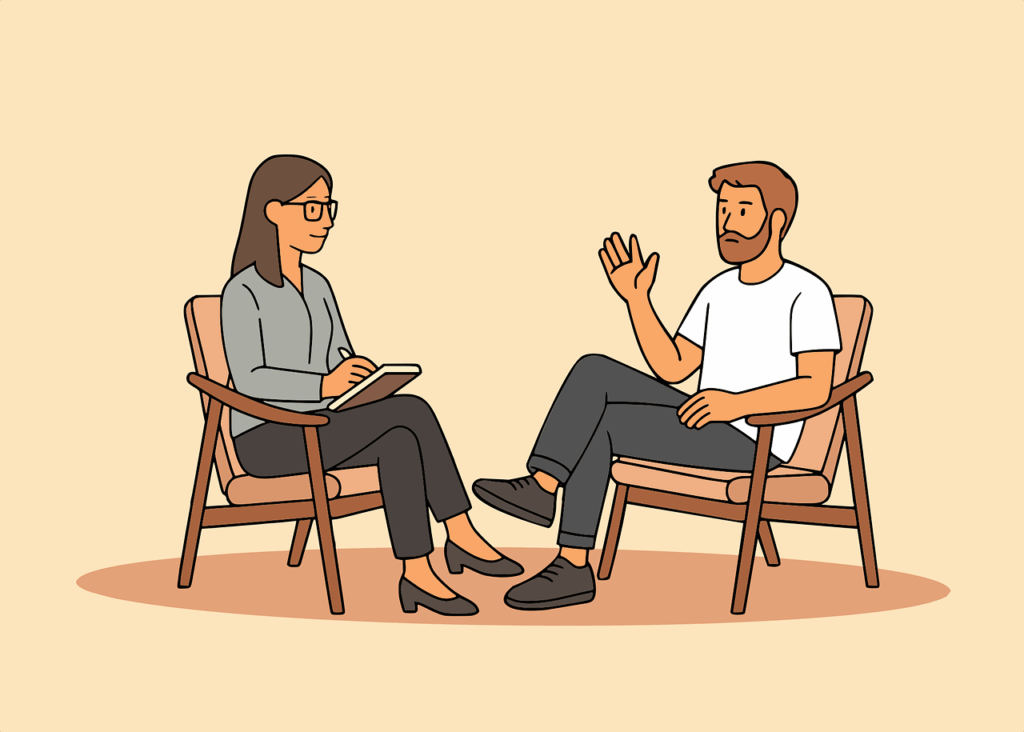What is Applied Psychology?
Psychology is the scientific study of people, the mind and behaviour. It explores how people feel, how they think, how they act. Also, how they interact with their environment and with each other. Applied psychology is utilising the results of the scientific research in a healthcare, workplace or educational setting.
Psychology is not only an academic discipline, it is also a professional practice. This research can help to develop new therapies, which can aid in problems in our personal and professional environments.
Different Types of Psychologists
There are many different types of Practitioner Psychologist that are registered with the Health and Care Professions Council:
- Clinical Psychology
- Counselling Psychology
- Educational Psychology
- Forensic Psychology
- Health Psychology
- Occupational Psychology
- Sport and exercise Psychology
Counselling Psychologists
Counselling psychologists integrate psychological theory and research with therapeutic practice. They work closely with clients to look at mental health issues. They explore the underlying problems that may have caused them. Psychologists work collaboratively with people to empower them to make decisions for themselves to improve their sense of personal wellbeing. They work across a range of human problems including bereavement, relationships, mental health issues and other significant life events. About half of all counselling psychologists are employed to do clinical work in health and social care settings.
Clinical Psychologists
Like counselling psychologists, clinical psychologists aim to reduce psychological distress and to enhance and promote psychological well-being. They deal with a number of mental and physical problems. These include anxiety, depression, addiction and relationship problems. They use a variety of methods including psychometric tests, interview and observation to assess. Psychologists work primarily in health and social care settings including hospitals and community mental health teams. They are also involved with research and in evaluation of current services to provide a strong evidence base for practice.

The Difference
There is considerable overlap between counselling and clinical psychology. Traditionally however, the main difference between counselling and clinical psychology is their perspective and training. Counselling psychologists, in general, focus more on milder concerns. Such as anxiety and depression. Whereas clinical psychology focuses on individuals with more serious mental health issues such as psychosis. Both types of psychologist work with similar people and in similar settings, so that the distinction between them is small.
Personal experience
I was offered sessions of psychology whilst hospitalised after an episode of mania. This subsequently resulted in a diagnosis of bipolar disorder. This was the single most beneficial thing about my whole hospital experience. The sessions provided me with the opportunity to talk about what had happened in my life so far. The psychologist helped me to identify the highs and the lows. Also, how I was able to cope then, but what was different this time. We talked about key life events and how I felt about them at the time. Looking back now, we discussed who had supported me at the time. Also, what else was going on in my life when I was dealing with these events.
The psychologist often gave me ‘homework’ to do in between our sessions. For example keeping a diary of my feelings and how my mood changed. Or perhaps I would be asked to think in more detail about a particular time of my life. This was with a view to discussing it in our next session.
Discussing feelings
The opportunity to discuss my feelings about very private and emotive events in a confidential environment played a vital part. This was with my acceptance of the events which had led to my mental ill health. I didn’t have to worry about what people might think or who I would upset. The psychologist was able to normalise my feelings and experiences. In doing so helped me to overcome the guilt I was hiding. This was regarding how I felt about life events and relationships in my family. These were still causing me stress at the present time.
I’m sure the medication helped in some ways. But I think of it as the plaster to cover the hole for a while, it numbed me. These sessions were something entirely different. They gave me insight into my illness and also into myself as a person. They helped me understand what had happened to me. Also, why it happened to me and how I might be able to prevent it happening again. They gave me a level of self-awareness that I otherwise may never have found. I believe it is this self-awareness which has kept me well for the past 3 years.